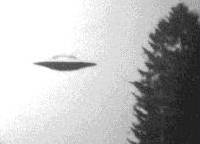Article/Document:
Carl Sagan Requested US State Dept. UFO Info
Associated Press, Sept. 30, 1997
original source | fair use notice
Summary: Reference in this press article to Carl Sagan requesting information about UFOs from the State Department.
Article: "Classified Documents Cost Big Bucks"
September 30, 1997
By MIKE FEINSILBER Associated Press Writer
WASHINGTON (AP) -- You want to read the minutes of the Board of
Foreign Scholarships from 1972-75. You want to pore over
20-year-old records of the Lake Ontario Claims Tribunal. You want to
see the daily journals of the U.S. military's advisory team in South
Vietnam's Dinh Tuong Province in 1971.
Have at it: They're secrets no longer. They've been declassified.
Every day, thousands of federal workers spend their days reading old
government documents. If they find nothing that the national interest
compels keeping secret, they scratch through the rubber-stamped ``top
secret,'' ``secret'' or ``confidential'' at the top and mark them
reviewed, cleared and accessible to anyone who wants to read them.
At the same time, thousands of federal workers spend their days
creating new classified materials, new state secrets.
The mountain shrinks; the mountain grows.
No one knows how many secret documents are made each year,
especially since the photocopier and the computer make it a breeze to
create -- or duplicate -- a classified document. With the push of a
button of either, the mountain of secrets grows.
But it looks like the mountain is finally shrinking. With the Cold War
over, the government is creating fewer fresh secrets and letting go of
more old ones. In the 12 months that ended Oct. 1, 1996, a total of 196
million pages were declassified, more than the combined total of the
previous 12 years.
The government has reasons of economy to shed old secrets. Studies
say it costs nine times as much to keep classified papers as
unclassified papers, according to Stephen Garfinkel, who, as head of
the Information Security Oversight Office at the National Archives,
oversees the drive to declassify.
That takes into account the cost of vaults and chain-link fences and
guards and of conducting FBI investigations of anyone authorized to
classify papers, or declassify them.
A Clinton administration directive gives agencies impetus to review old
records. It says all documents of historical value that are more than 25
years old will automatically be declassified in April 2000 unless they
are exempted by national security considerations.
Declassifying documents can be tedious business for officials who must
plow through records of the Intergovernmental Oceanographic
Committee from three decades ago or blueprints for ships no longer
afloat.
But one never knows, say the declassifiers. The old ship records
became important when the Navy needed to know whether sailors had
been exposed to asbestos fibers.
And recently some old Treasury records became crucially important
when the world wanted to know more about the Swiss acquisition of
gold seized by the Nazis from their victims. The Treasury sent a few
million pages to the National Archives to be declassified pronto, said
archivist Tim Willard.
But most of the work is more mundane, and dullness carries its own
reward, said Don McIlwain, another archivist. When it gets interesting,
he said, ``I tend to have the bad habit of really reading this stuff.''
More often, he said, one develops a sixth sense in looking for secrets
that ought to remain so.
Even when pressed for high points of years of reading government
secrets, Willard and McIlwain are hard-pressed to come up with
something likely to shout, ``Now it can be told!''
McIlwain told of State Department memos concerning the NATO crisis
of 1966, when France pulled partly out of the alliance. He was struck
by finding memos that had been written by Dean Acheson, a former
secretary of state called out of retirement to advise President Johnson
during the crisis, and another written by Lawrence Eagleburger, a
bureaucrat who 25 years later served as President Bush's secretary of
state.
``You realize you're working with the building blocks of history,'' he
said.
For Willard a memorable discovery was a letter astronomer Carl Sagan
wrote the State Department, while a graduate student, asking if it knew
anything about unidentified flying objects.
``Generally, you have to wade through a ton of junk to find the good
stuff,'' said McIlwain. ``Some days are interesting, and some very dull.''
End of article
Read more articles on this topic:







